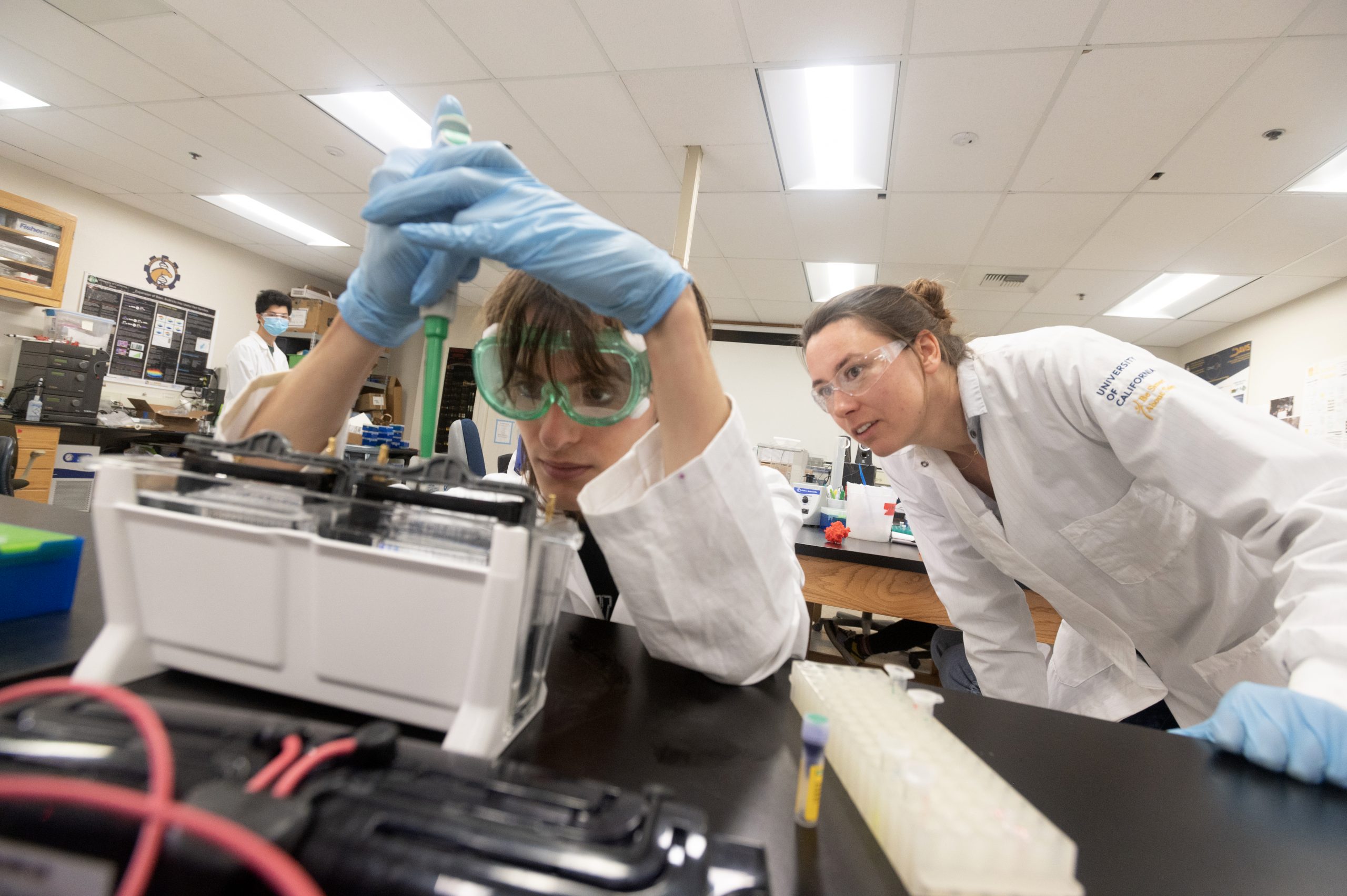
Two projects at the University of California, Davis, are among five announced by the U.S. National Science Foundation (NSF) that aim to accelerate the translation of AI-based approaches to protein design and enable new applications of importance to the U.S. bioeconomy.
Replicating human milk
Human milk contains complex sugars (human milk oligosaccharides, or HMOs) that are essential to infant health and development but difficult to produce. In collaboration with Davis-based Novozymes, this project will use advanced enzyme engineering, machine learning and cell-free protein synthesis to develop and optimize tools for synthesizing these oligosaccharides. This work aims to overcome challenges in producing infant formula and supports the development of new enzyme systems with commercial properties for broader applications in human health and nutrition.
Enzymes for acrylates
Acrylates are costly molecules used in paints, plexiglass and super-absorbent materials. This project in collaboration with Arzeda, a biotech company based in Seattle, aims to transform the production of acrylates by engineering new enzymes for rapid, affordable, scalable production.
This project has the potential to accelerate the commercialization of advanced protein engineering, driving innovation and growth in the U.S. bioeconomy, with benefits for both industries and consumers. UC Davis activities will be led by Program Director Ashley Vater (Genome Center) with Professor Justin Siegel (departments of Chemistry and of Biochemistry and Molecular Medicine, and faculty director of the IIFH).
The grants are part of a $32 million investment in AI and protein engineering announced Aug. 7, 2025 by the NSF Directorate for Technology, Innovation and Partnerships (NSF TIP). Both teams are affiliated with the UC Davis Innovation Institute for Food and Health in collaboration with industry partners.